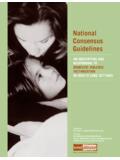Transcription of Order Kamagra Effervescent in Guernsey St. Peter Port ...
1 Todd J. Bloomfield Lourdes DeArmas William M. Karns Effective use of objections in responding to interrogatories [Ed. Note: This article contains suggested objections which can be adopted in respond ing to discovery. CAALA members may cut and-paste the objections listed in this article into their discovery responses by downloading the article from the CAALA Web site at The article may be found in the Advocate Magazine section under Advocate Article Archive Library.] While every case is different and civil litigation styles vary widely from lawyer to lawyer, the one constant in all litigation is basic preliminary written dis covery. The goal of written discovery is to permit all parties to identify essential issues necessary to evaluate the case and prepare for depositions and trial. Written discovery usually starts with form interrogatories and special inter rogatories. Unfortunately, all too often, the defense interrogatories are prepared by an inexperienced attorney, generating extra billing hours by propounding use less repetitive questions which are often sent without regard to your client s pri vacy rights or the relevant issues in the case.
2 The discovery propounded by defense firms are too often boilerplate forms which have not been tailored to the specific case and may not even have been reviewed by the propounding attor ney. Responding to this discovery can be an arduous and unpleasant task. Huge amounts of time can be consumed in preparing responses to some of the non sense propounded. What makes the problem even more challenging is that you must ensure that you accurately and completely respond to valid interrogatories. Failure to pro vide responsive information to proper interrogatories is both improper and unethical. It can also result in a bar to presenting that evidence at trial. Just as important, significant information about your case must be provided if you expect the defense to engage in meaningful mediation. Given that backdrop, as to each interrogatory propounded, the first question you must ask yourself is, Must I object?
3 The next thought you should have is, Should I object? followed by, What objections are available? Once you have completed that analysis and asserted proper objections, the final question you must decide is whether to answer the question once the objection is stated. While this article will focus on spe cific objections, the procedure in responding to discovery is important. Code of Civil Procedure section provides that if responses to interrogatories are not timely, all objec tions are waived, including the work product protection. When must/should an objection be stated? If an objection is not stated in response to written discovery, that objec tion is waived. (Code of Civ. Proc., ; and Scottsdale Ins. Co. v. Superior Court of Los Angeles County (1997) 59 263, 273 [69 112, 118].) Although there may be reasons to postpone objections in other areas, it is good practice in writ ten discovery to state all applicable objections in your initial written response.
4 There are exceptions to waiver; for example, a delayed objection on the grounds of privacy. (Heda v. Superior Court (1990) 225 525, 530 [275 136, 139].) But rather than risk a court ruling regarding a waiver by failing to object, applicable privacy and privilege objections should always be stated. Should the written dis covery process land you in law and motion, a practitioner who errors on the side of over-objecting will fair better than the attorney who missed a signifi cant objection. Your job is not only to prosecute your client s case, but also to protect your client s privacy. When the defense starts seeking your client s social security number, and medical information not related to the injury at bar, or other per sonal information, it is your job to defend your client s privacy, even if it might be easier to simply give the defense what they are asking for. Should information be provided even if an objection is stated?
5 For a plaintiff s attorney, a discovery battle is an undue consumption of time; for a defense attorney, it is a billing bonanza. If you win, you lose; and if you lose, you lose. The best outcome for a plaintiff s attorney is to avoid the fight. Pick your battles wisely. There is almost no risk in stating an objection if the request is answered any way. Most requests should be answered, even if an objection is stated. But object ing to every request without providing any answers is sure to end in a defense motion to compel. If an improper ques tion seeks information that will not hurt your case and does not invade your client s privacy, answer the question. Nothing will generate more interest from the defense than a response which makes opposing counsel think you are hiding something important. There may be discovery requests that seek information defendants are entitled to, but the request is improper in its form.
6 There may be discovery requests See Bloomfield et al, Next Page By Bloomfied, DeArmas & Karns continued from Previous Page July 2009 Issue that seek information that will not dam age your case. There may be discovery requests that require a showing of rele vance that your judge will eventually grant. In those situations, state the objec tion, but comply with the request. Specify that compliance does not waive the objection: Subject to and without waiv ing said objections, plaintiff responds as Objecting to interrogatories A Pulitzer has never been awarded for objections to written discovery. State objections simply and clearly. Support your objections with legal authority. An objection should be stated just as it would in a response to a meet and con fer letter, and then into an opposition to a motion to compel. A judge will notice and appreciate this kind of consis tency. Responding to interrogatories is enough work on its own without having to reinvent the wheel and spend count less hours researching cases to support your position that defendant s interroga tory is vague, ambiguous, overbroad, burdensome, oppressive, and not likely to lead to admissible evidence.
7 Therefore, set forth below are suggested objections to the most common discov ery issues. Objections to interrogatories Argumentative: Objection. This discovery request as phrased is argumen tative. It requires the adoption of an assumption, which is improper. Any discovery request that requires the adoption of an assumption is argu mentative. This is objectionable as to form. The classic example is, When did you stop beating your wife? This ques tion assumes facts that may not be true, but requires the answer adopt the assumption. Already asked, repetitive discovery: Objection. This discovery request has, in substance, been previously propound ed. (See Interrogatory/Request No. ___.) Continuous discovery into the same mat ter constitutes oppression, and Plaintiff further objects on that ground. (Professional Career Colleges v. Superior Court (1989) 207 490, 493 494 [255 5, 7-8].)
8 Although not a forceful objection, if the defendant continuously seeks the same information, irrespective of the phrasing of the request, it may be grounds for a protective Order based upon oppression. Attorney-client privilege: Objection. The request seeks informa tion subject to the attorney-client privi lege. The attorney-client privilege is broadly construed, and extends to fac tual information and legal advice. (Mitchell v. Superior Court (1984) 37 591, 601 [208 886, 891].) Communications between client and counsel are privileged. They are pre sumed to be made in confidence, and broadly privileged against from discov ery. This is a very broad privilege which extends to factual information and legal advice. Attorney work-product protection: This discovery request seeks attorney work product in violation of Code of Civil Procedure sections and (Cite appropriate case law and/or analysis of how the information sought is derivative in nature.)
9 Code of Civil Procedure section subdivision (a) states, [a] writ ing that reflects an attorney s impres sions, conclusions, opinion, or legal research or theories is not discoverable under any circumstances. Subdivision (b) expands the protection to include any other attorney work-product, unless the court determines that denial of dis covery will unfairly prejudice the party seeking discovery in preparing that party s claim or defense or will result in injustice. The purpose of this protection is to [p]reserve the rights of attorneys to pre pare cases for trial with that degree of privacy necessary to encourage them to prepare their cases thoroughly and to investigate not only the favorable but the unfavorable aspects of those cases, and to [p]revent attorneys from taking undue advantage of their adversary s industry and efforts. (Code of Civ. Proc., ) In analyzing the work-product privi lege, courts have determined that only derivative materials are protected.
10 Derivative work-product is that informa tion created by or resulting from an attorney s work on behalf of a client that reflects the attorney s evaluation or interpretation of the law or the facts involved. Nonderivative materials are those that are only evidentiary in charac ter. These are not protected even if a lot of attorney work may have gone into locating and identifying them. (Mack v. Superior Court (1968) 259 7, 10 [66 280, 283]. There is ample case law delineating derivative versus nonderivative work product. Objections into this should con tain case law on point. The following cases will assist in tailoring your work product objection: Mack v. Superior Court of Sacramento County; Williamson v. Superior Court of Los Angeles County (1978) 21 829 [148 39]; Brown v. Superior Court of Butte County, (1963) 218 430 [32 527]; and Nacht & Lewis Architects v. Superior Court (1996) 47 214 [54 575].)




